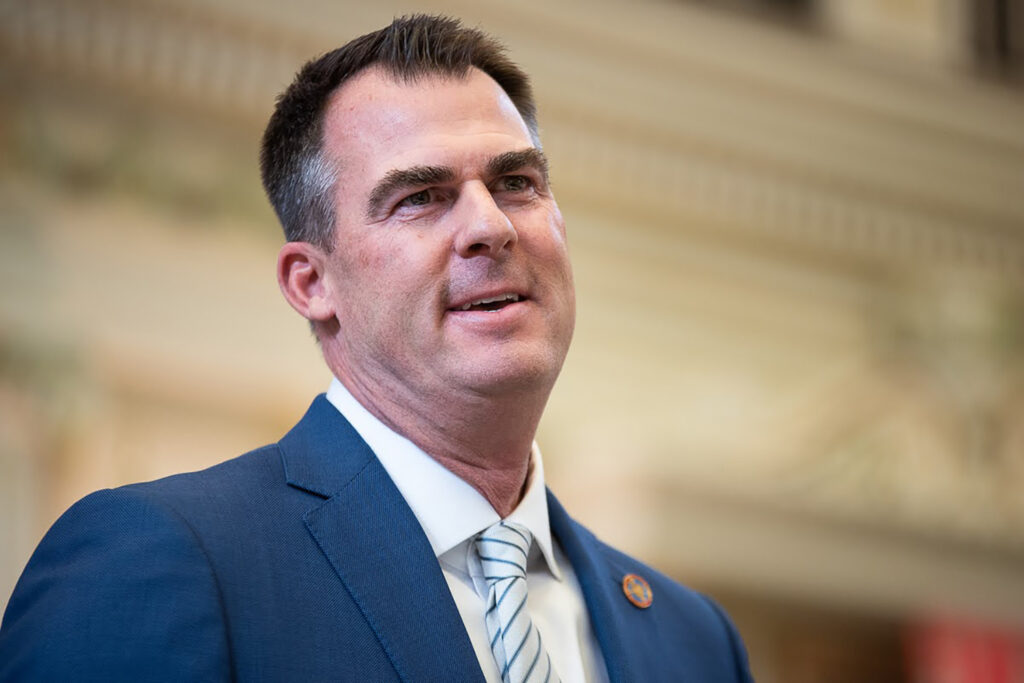Today, Oklahoma Governor Kevin Stitt announced a coordinated statewide effort “for enforcement against the unlawful manufacturing, distribution, and sale of psychoactive marijuana byproducts that pose a growing risk to public health and safety across Oklahoma.

Governor Kevin Stitt (photo credit: Whitney Bryen / Oklahoma Watch).
In a letter addressed to Secretary of Public Safety Tricia Everest, Oklahoma Bureau of Narcotics and Dangerous Drugs Control Director Donnie Anderson, Oklahoma Medical Marijuana Authority Executive Director Adria Berry, Department of Public Safety Commissioner Tim Tipton, and Oklahoma State Bureau of Investigation Director Greg Mashburn, Governor Stitt called for a cross-agency effort to strengthen regulatory and enforcement actions against these dangerous substances.
“These compounds, often marketed to young people, have psychoactive properties that threaten the safety and well-being of Oklahomans,” said Governor Stitt. “We must act quickly and collaboratively to address this emerging threat and ensure that both licensed and illicit markets are held accountable.”
Governor Stitt specifically cited concerns about substances such as:
- Delta-8 Tetrahydrocannabinol (Δ8-THC)
- Delta-10 Tetrahydrocannabinol (Δ10-THC)
- Hexahydrocannabinol (HHC)
- Tetrahydrocannabinol-O Acetate (THC-O)
- Tetrahydrocannabiphorol (THCP)
- Tetrahydrocannabivarin (THCV)
The governor’s office says these compounds “are often synthesized or chemically altered from hemp-derived cannabidiol (CBD) and are increasingly available without adequate regulatory oversight.”
The Governor tasked the agencies with:
- Coordinated Investigation: Identifying and investigating the manufacture, distribution, and sale of these compounds, both through licensed dispensaries and unlicensed venues such as convenience stores.
- Targeted Enforcement: Agencies such as OBNDDC, DPS, and OSBI will focus on unlawful networks, while OMMA will ensure dispensary compliance within their regulatory scope.
- Regulatory Assessment: Agencies will work together to identify any regulatory gaps and provide recommendations for statutory or administrative improvements to the Governor’s office.
The letter can be read here.








